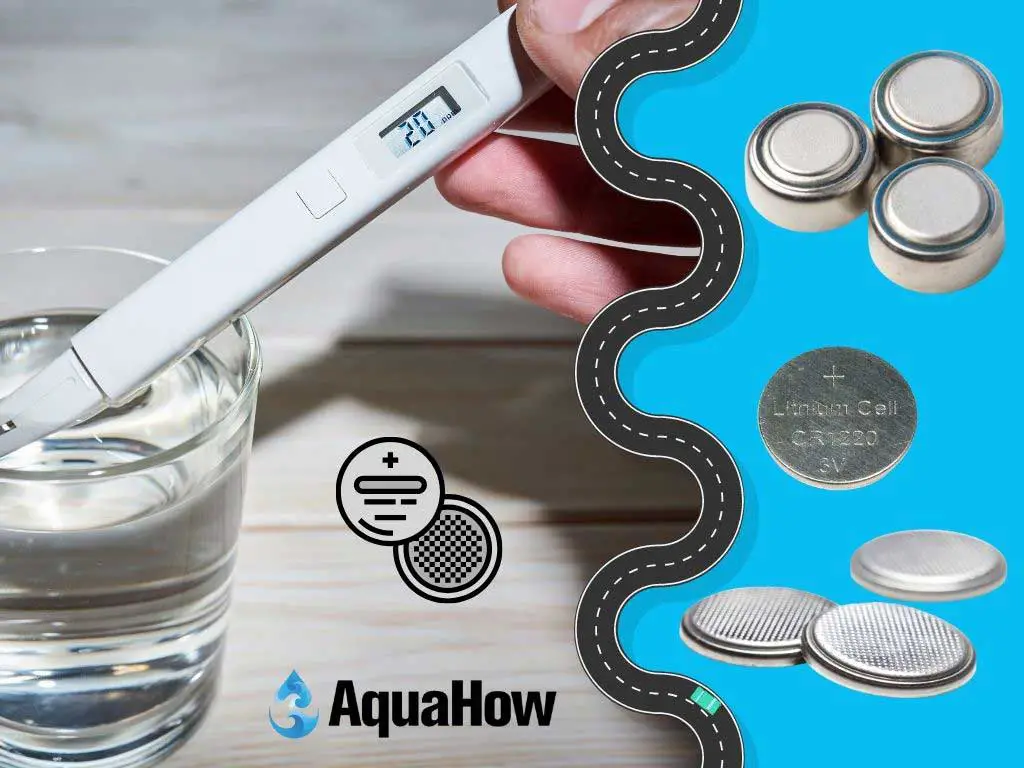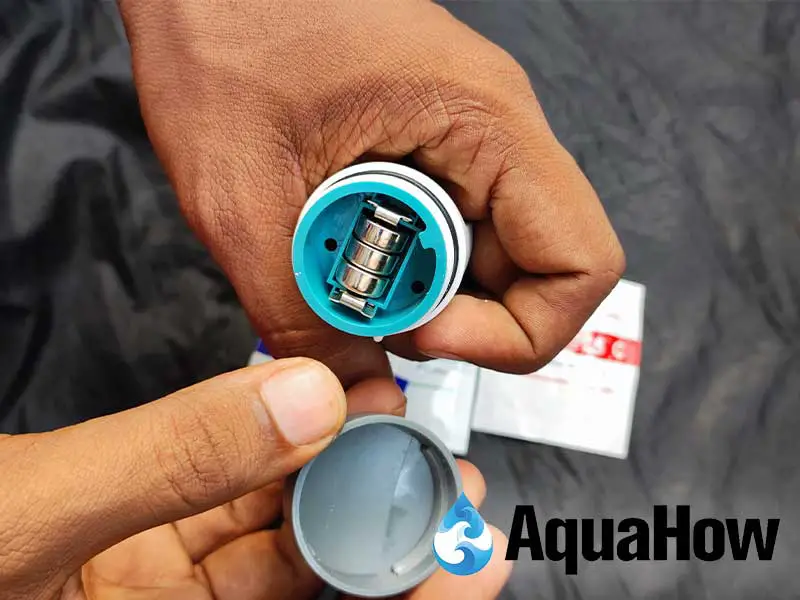The duty assigned to the TDS ester is measuring the Total Dissolved Solids (TDS) in water. The Zero Water TDS Tester is the best choice for you, undoubtedly.
But, you must Optimize Your Zero Water TDS Tester with the Right Battery to get that duty.
What is the zero water TDS tester battery type?
The required zero water TDS tester battery type for the device is LR44.
The LR44 can be used in a vast range of options. The following are the battery types that you can use for your device that matches the LR44 requirements.
- Vinnic Alkaline Button Cell L1154 (A76, LR44, AG13, PX76A, GPA76, A-76, 76A)
- GPA76, D76A, S76, GPA76, PX76A, A76
- G13A, V13GA, AG13, G13-A
- CA18, CA19
- LR44, SR44,CX44, SR44W
- L1154, LR1154, SR1154
- SB-F9, SB-B9
- 675A, RPX675, PX675A
- V13GA
- RW82
- 228
- 1128MP
- 1166A
- 208-904, 280-62

There are two main types of LR44 batteries according to their chagrin capability, Non-rechargeable batteries and rechargeable batteries.

Non-rechargeable LR44 alkaline battery
The recommended Zero Water TDS Tester battery is a non-rechargeable LR44 alkaline battery. The fowling is its specifications.
Specifications:
- Type: Alkaline non-rechargeable
- Voltage Produced by the battery: 1.5 Volts
- Capacity: 150mAh
- Temperatures that the battery can be used in -10C to +65C
- Dimensions: 11.6 mm x 5.4 mm
- Most common benefit: Lowest Discharging rate
Pros
- Longer durability for the tester
- Low maintenance cost
Cons
- High price
Which Battery Should I Use for My Zero Water TDS Tester to Ensure Optimal Performance?
When it comes to ensuring optimal performance for your Zero Water TDS tester, following the zero water tds tester instructions is crucial. By carefully selecting the appropriate battery, you can guarantee accurate readings. Make sure to consult the instruction manual to determine which battery type is recommended, as using the wrong one may result in inaccurate or inconsistent results.
LR44 Rechargeable Coin Cell Battery
The following battery type you can use is the LR44 Rechargeable Coin Cell Battery. They can be used repeatedly after recharging, and it is a benefit along with the quick charging.
The price is the second most appreciated fact about the LR44 Rechargeable Coin Cell Battery. The battery can be purchased as a pack which is also less than the typical Alkaline non-rechargeable batteries.
However, the LR44 Rechargeable Coin Cell Battery is not manufactured by popular brands such as Energizer.
Following are its specifications.
- Type: Lition rechargeable
- Voltage Produced by the battery: 3.6 Volts
- Capacity: 40mAh
- Temperatures that the battery can be used in -10C to +65C
- Dimensions: 11.6 mm x 5.4 mm
- Most common benefits: Quick charging, low prices
Note: Unlike the Alkaline lr44 batteries, you can’t use the tester for 1-2 years. The maximum use of the battery is up to 06 months, and the shell life of the battery will drop with time.
Warning: Several users had complained about the corroded batteries and casing due to the use of the LR44 Rechargeable Coin Cell Battery. If you are out f the warranty period, you must not use this battery type.
Pros
- Low cost to replace the battery
Cons
- High maintenance cost to the tester
- Reducing the life of the tester
- Violation of the warranty of the tester
- Additional cost to the charger
Conclusion
As you can see, you should not go for rechargeable lithium batteries due to several cons. In order to get maximum use from your Zero Water TDS tester, the non-rechargeable l44 will be the best zero water TDS tester battery type for you.

